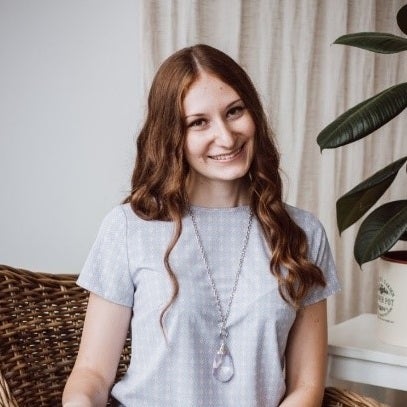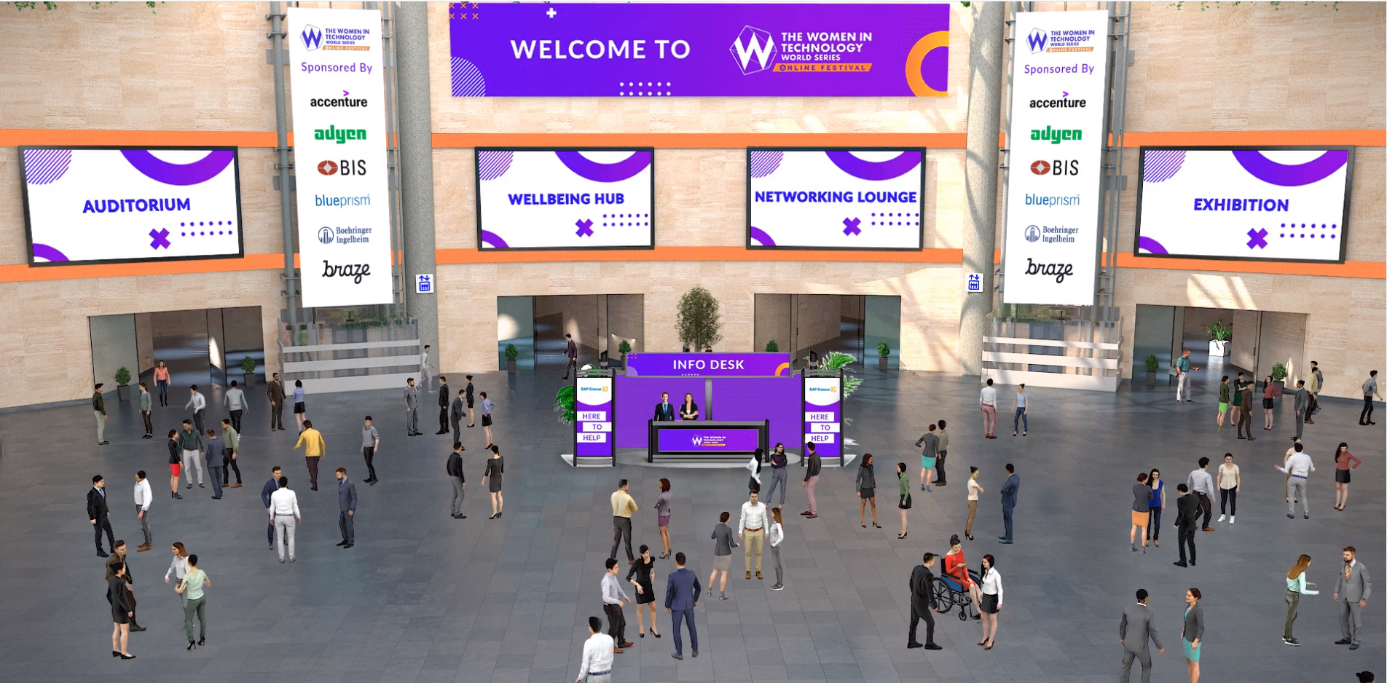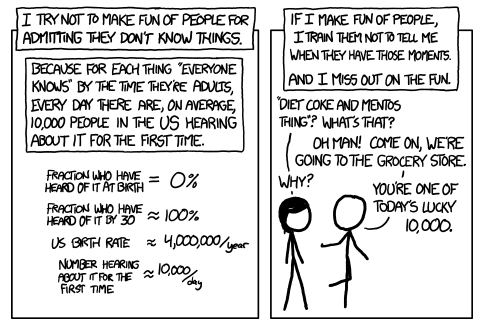Hanna and Anastasia joined the Women in Tech Festival in mid-November. We wanted to know why the ladies are so interested in this topic and what they took back from the conference.
- Introduce yourselves, who are you?
Anastasia:

Hi, I am Anastasia, 24 years old, moved to the Netherlands around 3 years ago from Moscow, Russia. I am now working at iProspect as a Technical Product Owner and a Software Developer. Ever since I was a little girl my dad has always challenged me to understand how things work from the very beginning. He taught me to be curious and to never give up. I remember being around 10 years old, sitting underneath a desk with my dad next to a computer case. He was explaining to me how every part was connected and what it was responsible for. This has really developed my analytical and logical thinking and brought me into studying business informatics. I have now been working in tech for over 5 years.
Hanna:

Hi, I am Hanna, 24 years old.
I moved to Amsterdam from Belarus in April to join iProspect as a Software Engineer.
Love of mathematics led me to a technical university, where I began my professional development in software engineering.
I have been working in tech for 5 years.
- Why did you want to join this conference?
Hanna:
My interest in the “Women in tech” topic started to grow many years ago. In my university 90% of the students were guys. I was observing that I had to put much more effort into learning and even wanted to quit the studies. Now I’m so glad I didn’t have the courage for that!
The next challenging period was when I started to work. I was the only girl in the team. My male colleagues were good professionals and the knowledge I received while working with them was really valuable. But at the same time, I had to face disrespect and mistrust towards me because I was a girl. As a result, I got lots of questions about self-confidence, team work, further career growth, networking and life balance.
Luckily, I found out that even in Belarus we had “Women in tech” community and moreover they were launching the first mentoring program for young women. I was selected as a mentee and had 3 months full of workshops, networking, communication and support. At that moment I felt the importance of having more experienced women next to me, whose life motivated me to move forward.
Now, after a year since that moment, living in the Netherlands and working from home, I started to feel a bit lost and depressed with all the COVID restrictions. To meet new women online and get inspired by their career and life was my motivation. And it was amazing to notice how my mood and mindset were changing with every wonderful speaker at the conference!
- Which sessions were the most exciting?
Anastasia:
The whole conference was very inspiring and motivating. Despite the “new normal” and online format of the festival, everything was perfectly arranged and even made it easier to connect with other attendees and reach out to speakers with questions.

My personal top 3 sessions were:
- Being Agile vs Doing Agile: An Exploratory Introduction (Ruth-Louise Scholefield, Senior Agile Delivery Lead, Kin + Carta Create)
In our team at iProspect we follow Agile & Scrum methodologies, so I was very curious to learn if we could further improve our ways of working together. During the session speakers explained that to be Agile it is not enough to just adopt and surround yourself with existing practices and tools but living its values and principles, having a mindset of continuous learning and improvement is something that is a very important part of it. The key take always and examples of being Agile would be:
- Do not use same tools and approaches for all problems and projects but rather apply right tools, right job at the right time;
- Regularly reflect on self and sharereceive feedback not only during retrospectives, make it less formal;
- Encourage the whole team accountability, focus on quality and trust that team does the work to its best.
- It’s OKAY to cry! (Alison Tierney, GVP, EMEA, Snowflake)
At the moment our tech team at iProspect has almost 50/50 women and men. However, in tech industry it happens quite often that women representation is very small. This is usually associated with difficulties of finding “common language” with your pears and fears of showing emotion for women. The speaker told a very inspiring story about her own experience working in a male dominated culture, and eventually even bursting into tears after a very stressful period of her life at a meeting. She stressed the importance of not being afraid to stay your true self, and to always remember that the way you think others perceive you is not always what they would actually think.
- Why Getting Out Of Your Comfort Zone Will Get You Ahead (Sope Agbelusi, Managing Director, Mindset Shift)
In order to move forward in life, develop yourself and simply be happy it is very important to learn how step out of your comfort zone. The speaker has mentioned that, statistically speaking, most people operate most of their life in the comfort zone.
The whole process could be divided into these four sequential areas:
- Comfort Zone – where you feel safe and can control the situation;
- Fear Zone – where you seek excuses, sometimes do not have confidence or are affected by others opinion;
- Learning Zone – where you start extending your comfort zone and acquiring new skills;
- Growth Zone – where you can live your dreams, be happy, set new goals and objectives, find purpose.
It is important to learn not to step from Fear back into Comfort Zone but rather accept opportunities and situations, even if they scare you, and move forward into Learning and Growth Zone.
- What were the most interesting ideas or tips you heard from speakers?
Hanna:
Firstly, I wrote down the quotes and tips for young women provided by each speaker. I am going to create a collage and put it on the wall to remind myself of simple and important facts such as “Be authentic”, “Embrace yourself”, “Go for the opportunities life is offering you”, “Seeing a problem as an opportunity”, “It is normal to cry releasing emotions” etc.
Secondly, many women noticed the importance of reflection. And my way to do it is writing a diary. A year ago it was not so often that I wrote something down and now I do it almost every day. It helps to free your brain from random thoughts and to analyse your worries and goals. Moreover, it is quite interesting to read “the story of your life” afterwards. Also one of the speakers proposed to have the page with your achievements and I will definitely do that. It might help to revise your successful moments and return back the confidence at the moments of sadness. I think it will also help in writing your annual self-review at work :)
Thirdly, there was a really nice approach on how to deal with imposter syndrome that I want to try. The steps are the following:
1. Picture your imposter syndrome
2. Put it in the box
3. Close the box
4. And put it into the closet.
While doing this just focus on something that has to be done. And add “Worry time” to your daily/weekly schedule to reflect on your worries :)

- Tips for other girls that want to become a techy?
Anastasia:
With so many technologies and platforms, it is extremely easy to learn and acquire new skills every day. In tech industry it is essential to continue learning and developing yourself every day.
However, it is also very important to filter out information that is misleading and incorrect. Always make sure that the resource you are using is trustworthy.
What I find very important to move forward in your career is to: always be prepared and make sure that you understand the topic very well but never be afraid to admit that you do not know something. This way your team can not only better estimate, plan their work and achieve goals, but also there are created better opportunities for you to learn and get support from more senior peers.
Hanna:
Looking back at my 5 years’ experience I would say that most important is to find work and life balance. Just find some enjoyable activities/hobbies that can help you to change the focus and relax. Of course, you will have to study and work hard to be a competitive specialist but remember - work hard play hard.
Another advice is don’t be afraid to ask “stupid” questions. No one will judge you as everybody at some point in the past was in your shoes. You will definitely find people who are ready to help you not to get lost in such a changing industry. So don’t be afraid to meet new people either.

